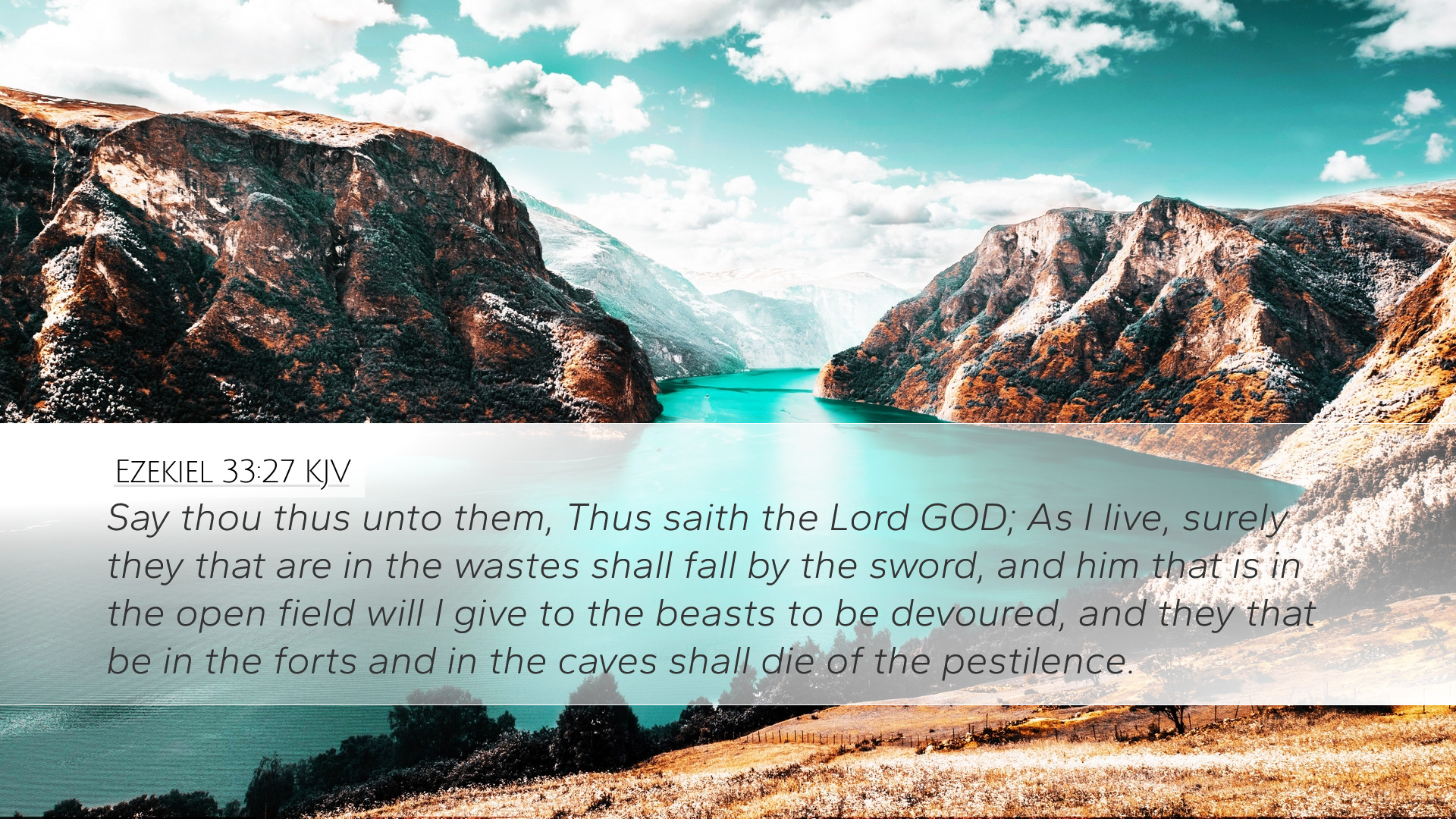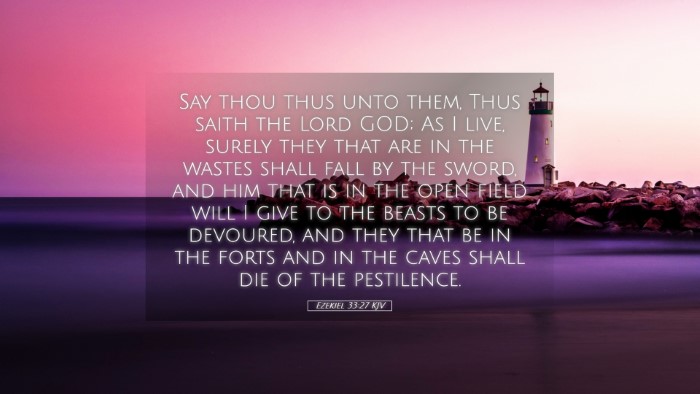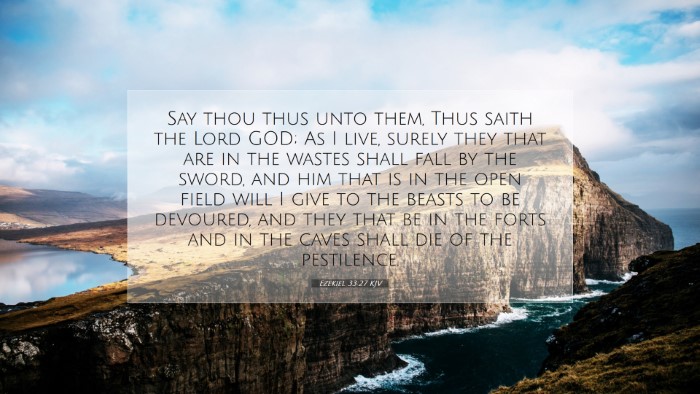Bible Commentary on Ezekiel 33:27
Ezekiel 33:27: "Say thou thus unto them, Thus saith the Lord God; As I live, surely they that are in the waste shall fall by the sword, and him that is in the open field will I give to the beasts to be devoured, and they that be in the forts and in the caves shall die of the pestilence."
Contextual Background
The context of Ezekiel 33 is centered on God's message of judgment and the accountability of Israel. The prophet Ezekiel was called to serve during a time of great turmoil for the nation of Judah, leading to the Babylonian Captivity. The chapter emphasizes God's desire for the salvation of His people while underscoring the seriousness of sin and divine justice.
Analysis and Insights
Divine Sovereignty and Assurance
Albert Barnes highlights that the assurance of God's living nature serves as a guarantee for the veracity of the warnings issued through the prophet. The phrase "As I live" asserts God's sovereign authority and the seriousness with which these decrees should be regarded.
The Nature of Judgment
Matthew Henry points out that the judgments described are indicative of divine retribution. Those who have disregarded God's warnings and engaged in sin will face severe consequences. This reflects not only God’s justice but serves as a divine call to repentance.
Symbolism of the Locations
The different locations mentioned—waste places, open fields, forts, and caves—illustrate varied conditions of humanity. Adam Clarke emphasizes that no escape from judgment is possible, regardless of socio-political status or physical hiding places. The universe is under God's oversight, and the consequence of sin can reach anyone, anywhere.
Theological Implications
The Universality of God's Judgment
This passage serves as a sobering reminder of the universality of sin's consequences. Matthew Henry notes that judgment will not spare the complacent or those who defy God's commandments. All are accountable to the divine standard, highlighting the need for believers to live righteously.
The Call to Repentance
Albert Barnes positions this message as a clarion call for repentance among the people of Israel. The impending judgment can still be avoided through genuine repentance, embodying God’s willingness to forgive those who turn back to Him.
Practical Applications
Awareness of Sin
For pastors and theologians, the passage provides a reminder of the necessity for vigilance against sin. Adam Clarke encourages leaders to emphasize the seriousness of sin in their teachings, fostering a culture of accountability and growth within the church.
Hope for Restoration
Despite the harsh warnings, Ezekiel 33 presents a dual message of justice and mercy. Matthew Henry posits that the opportunity for repentance stands as a testament to God’s grace, assuring believers that though judgment is impending, hope is still available for the contrite heart.
Preparation for the Future
As Israel faced potential destruction, Albert Barnes emphasizes the importance of being spiritually equipped for either judgment or restoration. Pastors and leaders should guide their congregations to remain prepared through prayer, scripture study, and communal support.
Conclusion
Ezekiel 33:27 encapsulates the themes of divine sovereignty, judgment, and the opportunity for repentance. By examining commentaries from Matthew Henry, Albert Barnes, and Adam Clarke, we derive a multifaceted understanding that is meaningful for pastors, students, theologians, and Bible scholars alike. This verse serves as both a warning and an invitation, challenging believers to reflect on their lives in light of God's standards while fostering a hopeful ethos of repentance and redemption.


